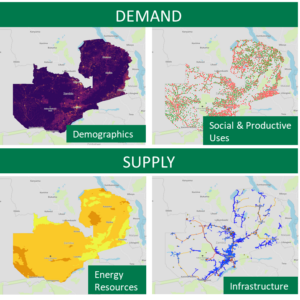PAYGO companies argue that several requirements stipulated in the regulation for Tier 2 – Non-Deposit Taking Microfinance Service Providers don’t fit their core business model, and if they are made to comply with all of the regulations as they are currently stated, many PAYGO solar companies would not be able to advance their energy access work.
In November 2018, the Government of Tanzania (GoT) passed a new Micro Finance Act that seeks to regulate the provision of all credit in the country. It requires firms including non-deposit-taking institutions offering services that include micro-leasing and micro-insurance services to comply with the Act. The Regulations that regulate activities under the Act were subsequently published in September 2019.
Since the enactment of the Act, PAYGO firms have been concerned that their services might be following under the Act. As such a few of the companies in the Pay-as-you-go(PAYGO) sector are in the final stages of closing debt or equity investments that would enable them to expand their operations in Tanzania. The uncertainty around whether they would be subject to, and able to comply with, these new regulations in their current form, has jeopardized the closure of these investment deals.
PAYGO companies argue that several requirements stipulated in the regulation for Tier 2 – Non-Deposit Taking Microfinance Service Providers don’t fit their core business model, and if they are made to comply with all of the regulations as they are currently stated, many PAYGO solar companies would not be able to advance their energy access work. Their core business is energy access while leveraging technology that enables customers to pay in small installments over time, to offset the relatively ‘high’ upfront cost for low-income consumers. With just a cell phone and a mobile wallet, customers can pay for energy as they go, and benefit from electricity to light their house, charge their cell phones, and power essential appliances and electronics like radios and televisions. This financing is just a means to enable energy access, rather than serve as a profit-making business instrument.
Tanzania government issued a 1-year grace period that expired at the end of October 2021 and subsequently extended to 30 April 2021 for stakeholders to review the regulations before they become effective. ACE TAF in collaboration with Tanzania Renewable Energy Association (as representative of the private sector) and Tanzania Association of Microfinance Institutions (TAMFI) has been utilizing this period to lead engagement with Bank of Tanzania(BoT) to allay fears and uncertainty by the PAYGO companies on how the Microfinance Act will impact the off-grid sector. The idea is to have a regulatory framework that will not impact the Off-Grid Sector.
ACE TAF involvement has led to clarity of implementation of the Regulations come into light from initiatives summarized below:
In May 2020, ACE TAF supported TAREA to write an Industry letter to BoT that sought clarity on the applicability of 2019 Microfinance Regulations to PAYGO operations and presented details of how the PAYGO business model work. The BoT responded in July 2020 explaining that PAYGO solar business activities fall under “Commodity Microfinance” which is recognized under the 2018 Microfinance Act. However, the letter concluded that the bank was yet to start regulating such operations and the industry will be informed when the BOT starts regulating and supervising commodity microfinance. Despite this confirmation, the private sector still lacked clarity on what and how they must comply when the transition period (i.e. 12 months after commencement of the Act) expires at the end of October 2020 and the bank starts regulating.
Because of this continued uncertainty and after consultation with TAREA, ACE TAF and TAMFI coordinated a 1-day training workshop on 11 November 2020 in Dar es Salaam at Protea Courtyard Hotel between BoT and PAYGO companies to further discuss the new Act and its expected impact on PAYGO companies. 21 participants were in attendance including TAREA, representatives from PAYGO companies, and mini-grid developers. Much to the relief of the participants, the representative from the BoT confirmed there are no applicable regulations in place for the sector and that PAYGO companies can continue their operations under the existing legal and regulatory framework and will wait for further guidance from the Bank when applicable regulations are released.
As BoT has expressed their willingness to work with the Off-Grid Sector, ACE TAF and other stakeholders will continue to work with the bank and strive to be part of the regulatory process to ensure applicable regulations that will be in place to reasonably enable the PAYG industry to continue focusing on primary work of energy access in Tanzania.











October 2, 2023, 06:40
Microfinance extends financial services to individuals and businesses who are often excluded from the traditional banking sector. This includes low-income individuals, small-scale entrepreneurs, and those in rural areas. By providing access to credit, savings, and insurance, microfinance helps bring marginalized populations into the financial mainstream. Also, it contributes to the poverty alleviation. Small loans and financial services empower individuals to start or expand small businesses, generate income, and improve their living standards. This can have a direct impact on reducing poverty levels in communities.